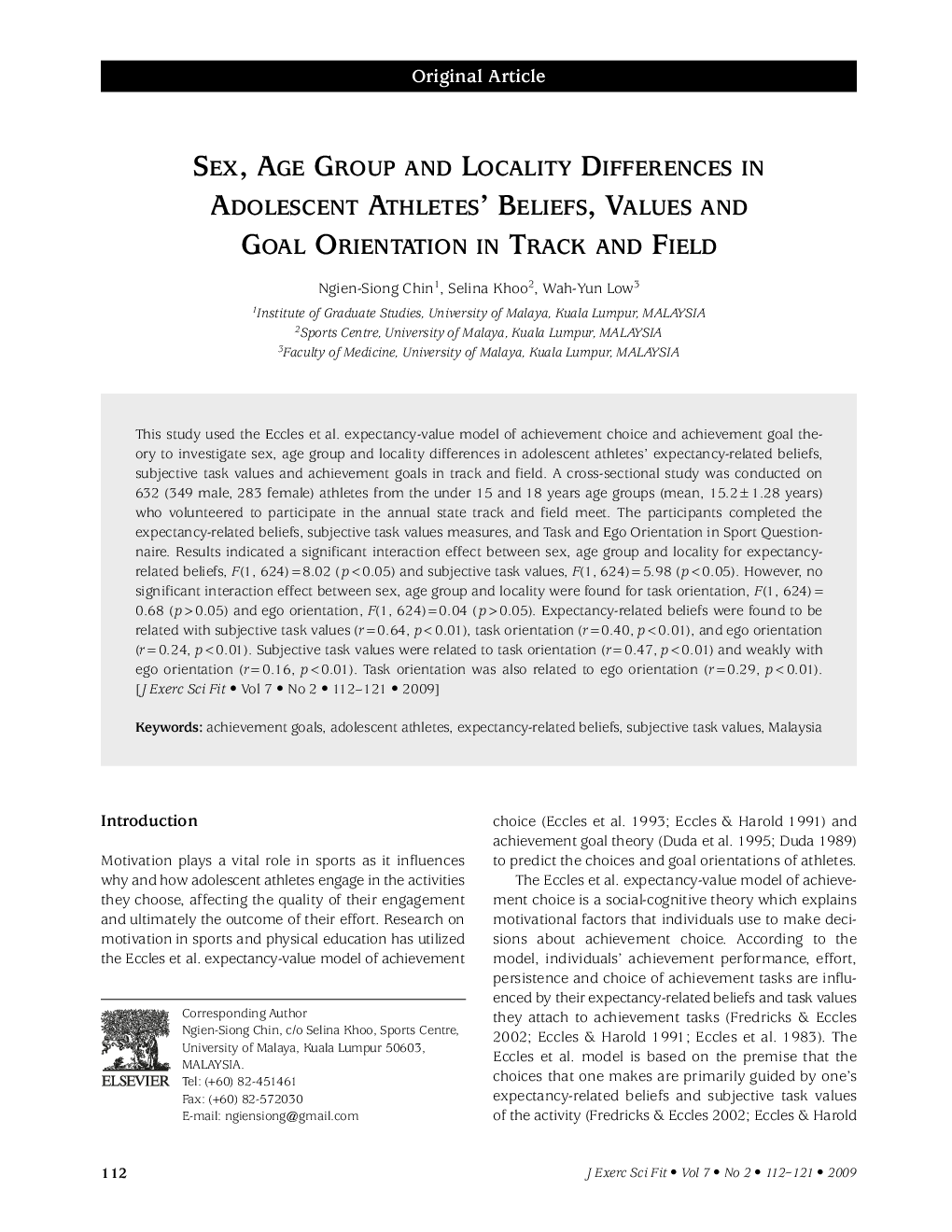| Article ID | Journal | Published Year | Pages | File Type |
|---|---|---|---|---|
| 2739716 | Journal of Exercise Science & Fitness | 2009 | 10 Pages |
This study used the Eccles et al. expectancy-value model of achievement choice and achievement goal theory to investigate sex, age group and locality differences in adolescent athletes' expectancy-related beliefs, subjective task values and achievement goals in track and field. A cross-sectional study was conducted on 632 (349 male, 283 female) athletes from the under 15 and 18 years age groups (mean, 15.2 ± 1.28 years) who volunteered to participate in the annual state track and field meet. The participants completed the expectancy-related beliefs, subjective task values measures, and Task and Ego Orientation in Sport Questionnaire. Results indicated a significant interaction effect between sex, age group and locality for expectancy-related beliefs, F(1, 624) = 8.02 (p < 0.05) and subjective task values, F(1, 624) = 5.98 (p < 0.05). However, no significant interaction effect between sex, age group and locality were found for task orientation, F(1, 624) = 0.68 (p > 0.05) and ego orientation, F(1, 624) = 0.04 (p > 0.05). Expectancy-related beliefs were found to be related with subjective task values (r = 0.64, p < 0.01), task orientation (r = 0.40, p < 0.01), and ego orientation (r = 0.24, p < 0.01). Subjective task values were related to task orientation (r = 0.47, p < 0.01) and weakly with ego orientation (r = 0.16, p < 0.01). Task orientation was also related to ego orientation (r = 0.29, p < 0.01).
